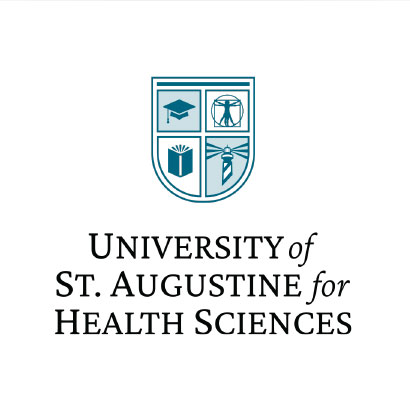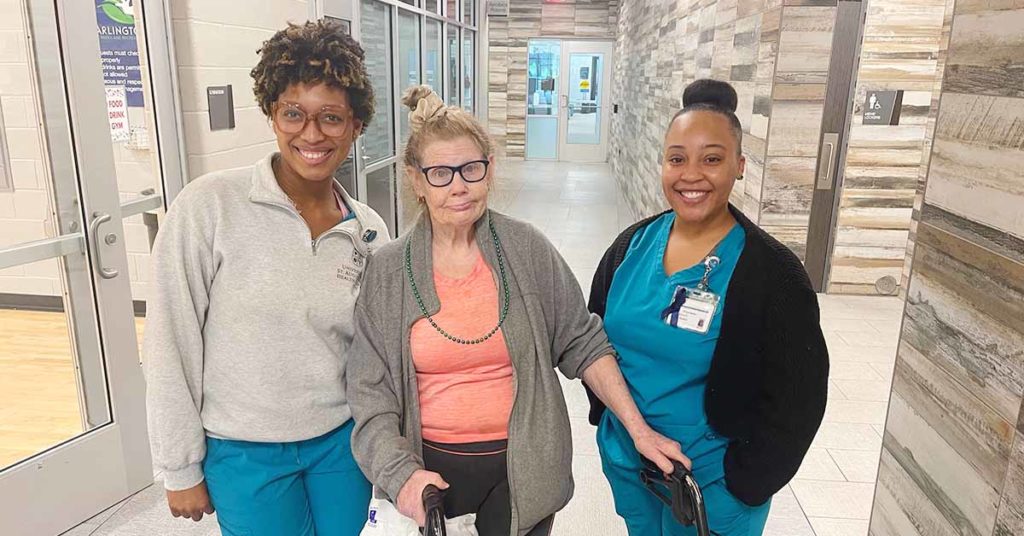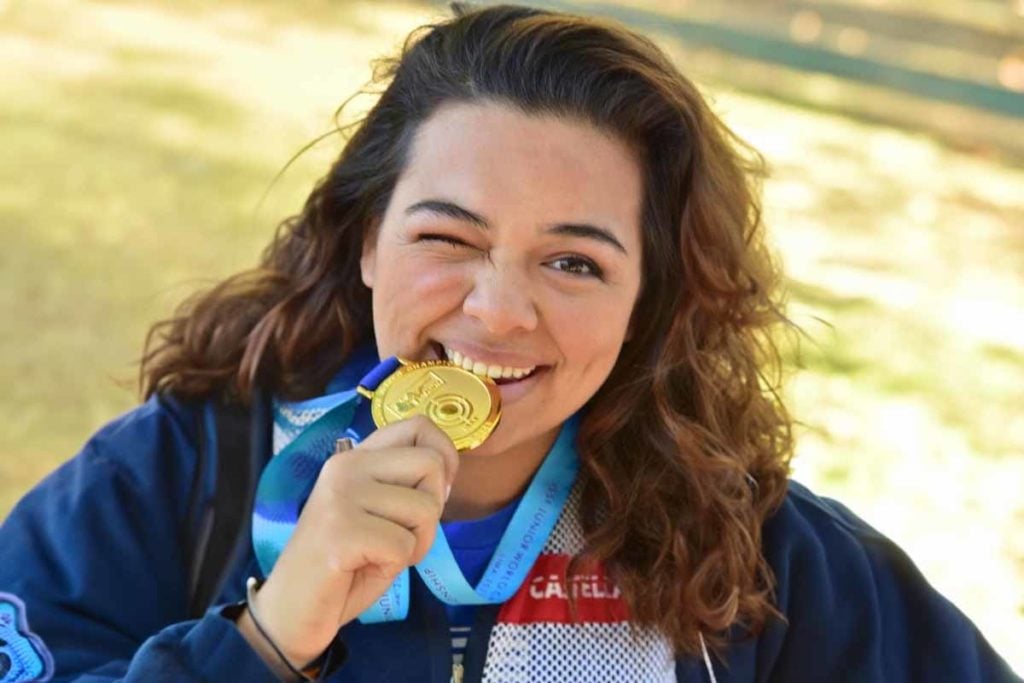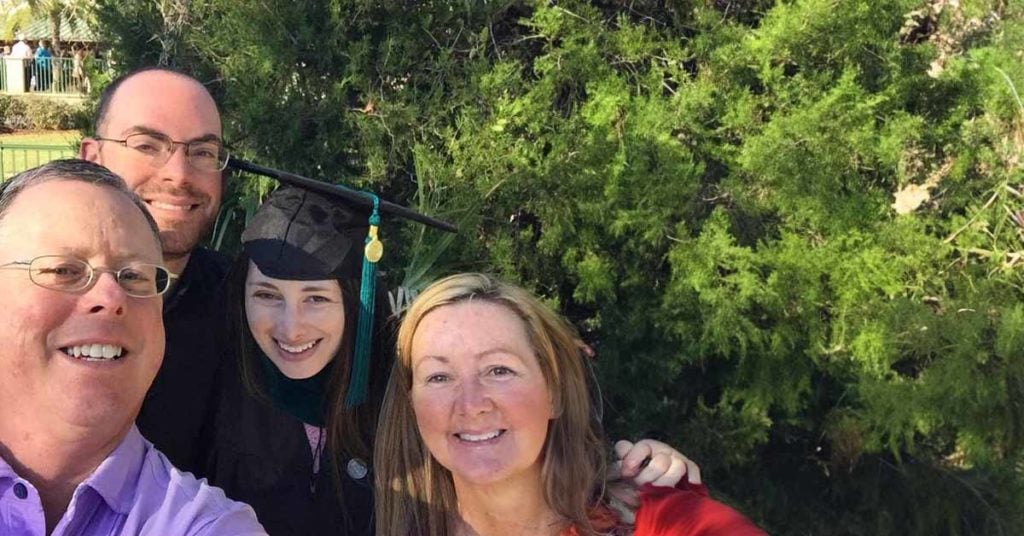
As the profession of occupational therapy migrates toward a doctorate as the standard entry-level degree, more and more practitioners are going back to school for their Post-Professional Doctor of Occupational Therapy (PPOTD). At the University of St. Augustine for Health Sciences (USAHS), students are entering our PPOTD program at vastly different stages of their career. We spoke to two current PPOTD students—one who is just launching her career and another who is a longtime practitioner—to hear about their experiences in the program.
One entered at the beginning of her career; the other after 30 years in the field.
Continuing from the MOT
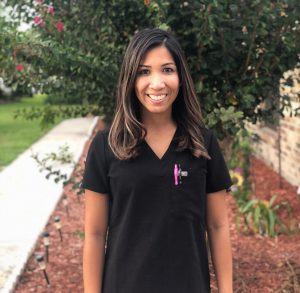

Janina (“Nina”) Matias was planning to become a physical therapist until she shadowed an OT at Brooks Rehabilitation in her hometown of Jacksonville. The OT’s holistic, client-centered approach inspired Nina. “I realized that occupational therapy is about what works for each patient. I saw a cognitive shift in the patient’s perspective with the intervention—it provided hope.”
She began her MOT on USAHS’ St. Augustine, FL campus a year before the university launched its entry-level OTD program. Wanting to gain more research experience through a doctoral program, she took advantage of the 10% tuition reduction USAHS offers to students who enter the PPOTD program six months after finishing our MOT. “This was my plan the whole time,” she said. “I knew if I stopped going to school, it would be harder to go back.”
After earning her MOT in 2017, Nina got a job at an inpatient rehabilitation facility, where she works with patients who have experienced stroke, brain injury, orthopedic issues, etc. “What I’m learning, I’m using,” she says. “I’m sharpening my interventions and skills with patients through what I learn in class every day.”
Being relatively new to the field of OT, Nina has benefited from the clinical experience of her classmates. One classmate has coached Nina on aspects of billing, ethics, and interprofessional team practice.
Working full-time while going to school has its challenging moments, but Nina’s fiancé is helping out by doing extra chores around the house. The PPOTD allows students to create their own schedule, which Nina appreciates. She took three credits the first term and six the second. Currently her load is eight credits, which is “tough but doable.” She adds, “If there’s something you need extra time for, the teachers are pretty understanding. They are very hands-on.” She will graduate with her PPOTD in April 2020, after she finishes the capstone course.
For her capstone project, she plans to work with her optometrist father to create an assessment tool to evaluate low vision in patients. Nina herself has vision issues and an interest in how OT can better serve the needs of low-vision clients. “It’s an area of OT that needs a lot of research,” she observes. Although she is the go-to person for this issue at work, she needs to have a full two years of work experience before she can test for a certificate in the low vision specialty—the next step in her ambitious career.
Earning the Doctorate After Years of Clinical Experience


Monica Keen is an OT with 30 years of experience working in skilled nursing facilities, acute care, and school settings. She owns a private practice in Summerville, South Carolina, employing a team of OTs who work with children with disabilities in their homes. Monica also serves as an adjunct instructor at the Medical University of South Carolina (MUSC). Because MUSC is transitioning to the OTD as its entry-level OT degree, she needs to hold this degree as well.
“The OTD has also been a long-term personal goal, because I love what I do so much,” she says. “I want to be as educated as I can be. I have the ambition to be more proactive in my field of practice.”
Monica earned her bachelor’s degree in OT in 1989 at MUSC. Almost 20 years later, she earned her MOT online from Boston University. She began BU’s doctorate program but had to drop out due to a family emergency. In 2017, she began the PPOTD program at USAHS.
“USA has an incredible program,” Monica says. “The immersion weekend on the St. Augustine campus was truly a wonderful experience. It was a good snapshot of what interprofessional team practice is like. I made friends there that I have to this day.”
She took on a mentorship role with one younger student and became her cheerleader and encourager.
When asked if her experience brought a helpful perspective to her cohort, she says, “I think I brought some humor, and I hope I could bring a more holistic approach to the client, treatment, and outcomes. I bring the mental health piece to working with children and their parents and teachers.”
“I may be a teacher, but I’m still learning,” Monica says. “I’m learning to apply knowledge in a different way.” At USAHS she has appreciated learning more about how to teach, develop a curriculum, interact with technology, and write scholarly papers in a more rigorous way. She has also explored more deeply “what evidence-based practice really is and why we need to use it.”
For her capstone project, Monica is focusing on mental health interventions in school-based practice. She says that while the roots of OT are in mental health support, the profession has lost that focus and needs more funding, research, and resources to get it back. “We have to look at, what does this individual need to feel okay? Like a kid with ADD who needs to walk around in class in order to listen. I can be her advocate. I can say to the teacher, ‘Can we just try it’? Or the kid in middle school who has autism and some of his behaviors horrify his parents—I can reassure his parents that he’s doing well.”
Monica is enthusiastic about her USAHS experience. “I’m leaving this program so much more equipped academically and professionally to take a leadership role in this field. I feel empowered. I feel more confident. The doors should be wide open—and I want to go through as many as I can.”
The University of St. Augustine for Health Sciences (USAHS) offers an online Post-Professional Doctor of Occupational Therapy (PPOTD) program* designed for working clinicians and OT educators, with optional on-campus immersions (currently postponed due to COVID-19). Specializations include Executive Leadership and Teaching and Learning. In this flexible and individualized program, you will advance your studies in clinical practice, research, leadership, advocacy, and education—and become a change agent in the field of occupational therapy.
*OT entry-level programs are subject to the accreditation regulations of ACOTE; however, post-professional programs are not under the jurisdiction of ACOTE.
